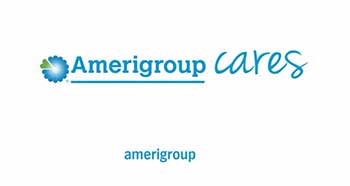Health insurance can be confusing, with so many options and providers to choose from. Two major players in the health insurance industry are Amerigroup and UnitedHealthcare. But how do these two companies compare when it comes to coverage, costs, and customer satisfaction?
This comprehensive guide examines the key similarities, differences, pros and cons of Amerigroup and UnitedHealthcare to help you determine which may be the better choice for your health insurance needs.
A Brief Comparison Table
| Category | Amerigroup | UnitedHealthcare |
| Coverage | Focus on Medicaid and Medicare Advantage plans | Broad coverage options including employer-sponsored, individual, Medicare, Medicaid |
| Availability | Offered in 19 states | Available nationwide |
| Plan Options | More limited | Many plan types and deductible levels |
| Provider Network | Better coverage in the 19 states operated in | National network |
| Premium Costs | Competitive pricing, especially for Medicaid and Medicare | Can be higher for some individual plans |
| Prescription Coverage | Offered on most plans with typical copays | Offered on most plans with typical copays |
| Customer Satisfaction | Higher satisfaction ratings on average | Lower ratings, more frequent complaints |
| Wellness Programs | Limited wellness benefits | Extensive programs and app access |
| Recommended For | Those eligible for Medicaid/Medicare in served states | Nationwide flexibility, those wanting range of plan options |
Overview Of Amerigroup And UnitedHealthcare

Amerigroup is a managed care company that provides Medicaid, Medicare Advantage, and other state-sponsored health plans. Founded in 1994, they currently operate health plans in 19 states and focus on serving low-income individuals, seniors, and people with disabilities. Amerigroup is owned by Elevance Health, one of the largest health insurers in the United States.
UnitedHealthcare is one of the largest health insurance providers in the US, serving over 50 million members. Founded in 1977, UnitedHealthcare offers employer-sponsored plans, individual plans, Medicare and Medicaid plans, and specialty products like dental and vision plans. UnitedHealthcare is a subsidiary of UnitedHealth Group, a diversified health services company.
Both Amerigroup and UnitedHealthcare offer health maintenance organization (HMO), preferred provider organization (PPO), and point of service (POS) plans. They also both provide Medicare Advantage and Medicaid managed care plans. However, UnitedHealthcare tends to offer more plan options and serves more geographic regions than Amerigroup.
Coverage And Benefits
When comparing Amerigroup and UnitedHealthcare plans, look closely at coverage details, provider networks, prescription benefits, and additional perks.
Coverage basics like deductibles, copays, and coinsurance tend to be very similar between comparable Amerigroup and UnitedHealthcare plans. Both insurers offer plans across metallic tiers (bronze, silver, gold, platinum) that comply with Affordable Care Act standards.
Provider networks for both companies tend to be broad, but may vary by location. Amerigroup tends to have better provider coverage in the 19 states where it operates Medicaid plans. UnitedHealthcare’s network is generally national in scope. Double check to see if your preferred doctors, hospitals, and specialists are in-network before selecting a plan.
Prescription drug coverage also tends to be very similar between the two insurers. Pharmacy benefits are included with most plans, with copays varying based on drug tiers. Both companies also offer Medicare Part D prescription drug plans.
Additional perks and programs may help differentiate plans. For example, UnitedHealthcare offers wellness programs, fitness memberships, and online resources through their UnitedHealthcare Motion program. Amerigroup also offers some similar wellness benefits but they vary by state.
When evaluating coverage, be sure to get plan details and evaluate the finer points to determine which offers the better fit.
Cost And Premiums
The cost of Amerigroup and UnitedHealthcare plans can vary significantly based on the type of plan, level of coverage, and location. Here’s how premiums and fees tend to compare:

- Individual/family plans: UnitedHealthcare typically offers more plan options at more price points for individuals and families. Amerigroup participates in ACA exchanges in select states.
- Medicare Advantage: Average premiums for Amerigroup Medicare Advantage plans in 2023 are $19.50 per month, while UnitedHealthcare’s are $32.60. However, benefits can vary greatly.
- Medicaid: Amerigroup Medicaid plans have no monthly premiums, while UnitedHealthcare offers Medicaid coverage in limited areas. Both have little to no out-of-pocket costs.
- Employer-sponsored: For group plans, employers negotiate rates based on company size, benefits, and more. Rates are usually very competitive between the two insurers.
- Deductibles and copays: Average deductibles and copays are similar between comparable plans from either insurer. Copays may be a bit lower on some Amerigroup Medicaid plans.
When pricing out plans, look holistically at monthly premiums, deductibles, copays, coinsurance, and total out-of-pocket costs to identify the most cost-effective options. Geography and plan type can impact costs significantly.
Customer Satisfaction
Understanding customer satisfaction ratings helps evaluate the quality of coverage and services offered by Amerigroup and UnitedHealthcare:
- Amerigroup customer satisfaction: According to JD Power’s 2022 rankings, Amerigroup scored 696 out of 1,000 points for overall member satisfaction. Medicaid members tended to be more satisfied than Medicare members.
- UnitedHealthcare customer satisfaction: UnitedHealthcare scored 706 out of 1,000 in JD Power’s 2022 customer satisfaction survey. They performed well in coverage and benefits but scored lower for customer service experience.
- Complaints: Amerigroup has fewer complaints on record with the National Association of Insurance Commissioners. UnitedHealthcare has more complaints but that is somewhat expected given their larger size.
- ACSI score: Amerigroup scored an 86 out of 100 points on the American Customer Satisfaction Index for health insurance in 2022 versus UnitedHealthcare’s score of 73.
Overall, Amerigroup tends to score higher than UnitedHealthcare for customer satisfaction according to these industry ratings. However, UnitedHealthcare’s larger size means they may offer better nation-wide service and recognition.
Also Read: Comparison Between Cigna And CareFirst.
Pros And Cons Of Amerigroup And UnitedHealthcare
Amerigroup Pros
- Strong Medicaid and Medicare Advantage plans
- Competitive premiums for individuals
- Higher customer satisfaction ratings
- Better coverage in the 19 states where offered
Amerigroup Cons
- Only available in 19 states
- Smaller national presence and recognition
- Fewer overall plan options
- Mixed service reviews in some areas
UnitedHealthcare Pros
- National presence and broad provider networks
- Wide range of plan options and deductibles
- Extensive wellness programs and app access
- Strong brand recognition and services
United Healthcare Cons
- Pricing may be higher for some individual plans
- Lower customer satisfaction ratings
- More frequent complaints
- Coverage varies by region
When choosing between the two, think about what plan attributes matter most – national access, affordability, customer service, breadth of options, or brand reputation. This can help determine which insurer aligns better with your priorities.
Also Read: Choose Between Aetna And Delta Dental.
Frequently Asked Questions (FAQ)
UnitedHealthcare is one of the largest health insurers in the U.S. In terms of membership and market share, it ranks behind only Medicare and Medicaid. UnitedHealthcare competes against other large insurers like Cigna, Aetna, and Humana. It tends to rank competitively for pricing, options, and service.
Some of UnitedHealthcare’s major competitors are:
Anthem, Cigna, Aetna, Humana, Highmark.
These companies actively compete for employer-based group plans, individual coverage, Medicare Advantage, and other offerings in regions where they overlap. No single competitor has an advantage nationwide – they all compete across different segments and geographies.
Overall, UnitedHealthcare is considered one of the leading health insurance carriers in the U.S. They offer comprehensive plans on a national basis and competitive rates. However, customer satisfaction varies – UnitedHealthcare gets mixed reviews related to billing, coverage denials, and service issues. Their plans and provider networks are strong for most consumers if cost and customer service are less important.
Amerigroup Texas offers both Medicaid health insurance and Medicare Advantage plans. Their Medicaid plans provide no-cost or low-cost coverage to eligible lower-income individuals. Amerigroup’s Medicare Advantage plans include HMO and PPO options with added benefits like dental and vision.
In Texas, Amerigroup focuses heavily on government-sponsored managed care plans rather than commercial group or individual insurance.
Also Read: Choose Between Humana Dental And Delta Dental.
Conclusion
The choice between Amerigroup and UnitedHealthcare depends on your specific health insurance priorities – affordability, customer service, breadth of coverage, and provider access are all factors to weigh carefully. Ultimately, evaluating your expected costs, coverage needs, and preferences can help determine which insurer is the smarter choice for you.
